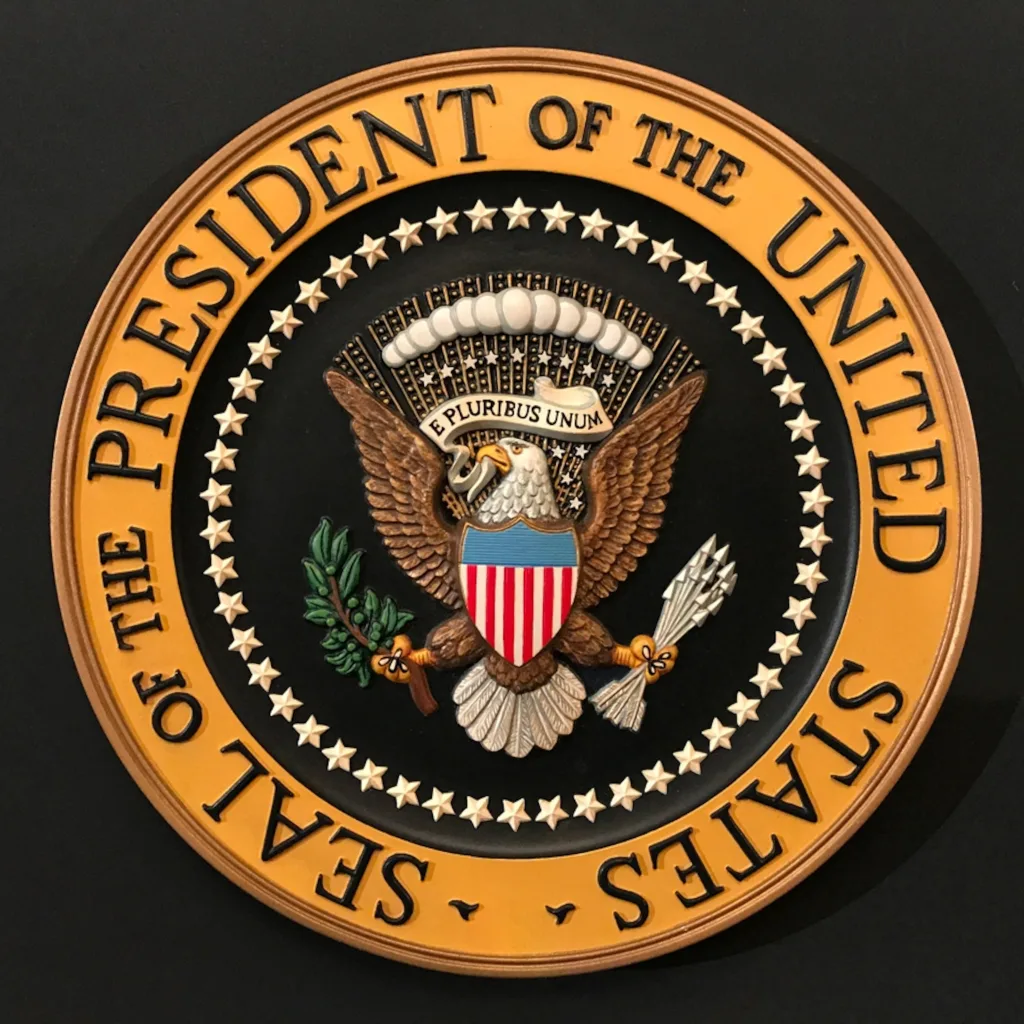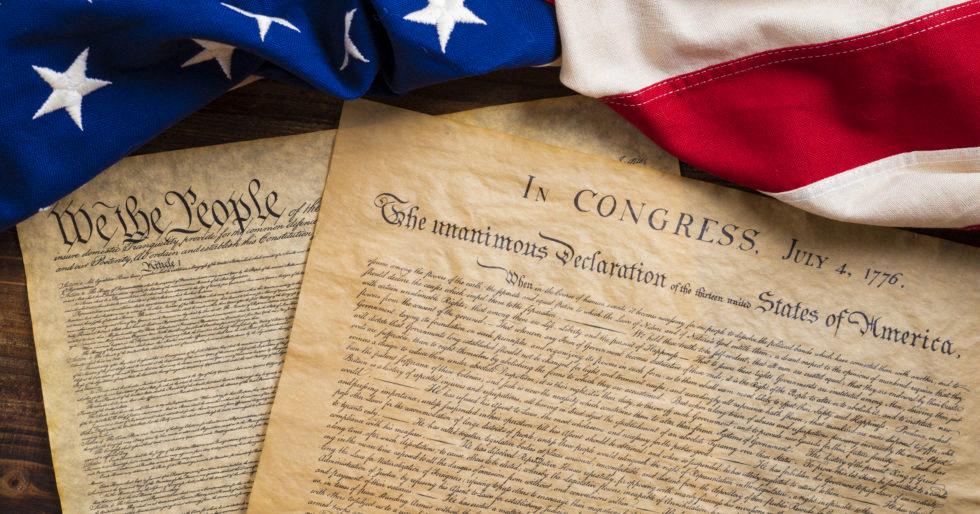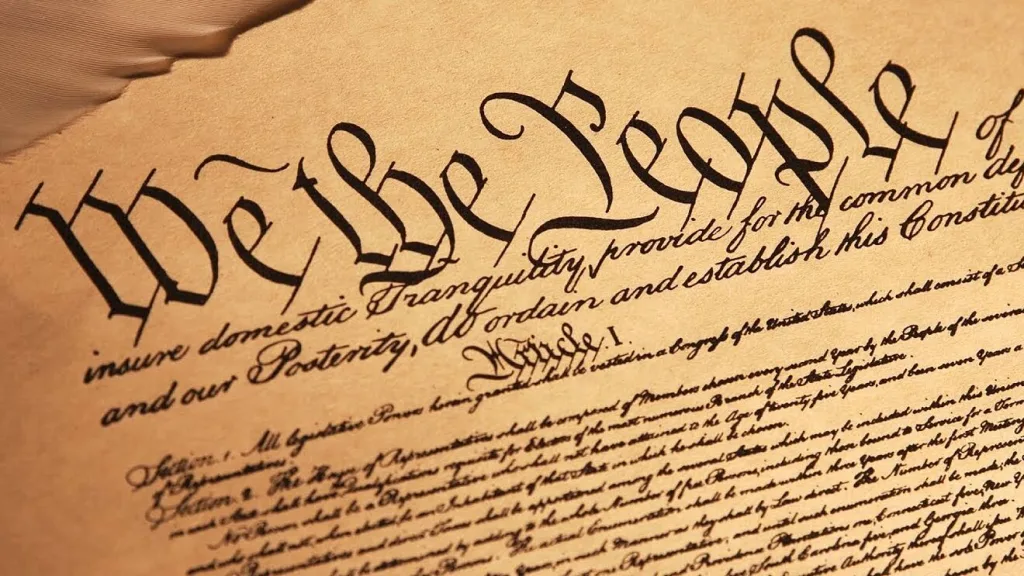The President of the United States is one of the most powerful positions in the world. With their ability to make executive decisions and their role as head of the military, they have a wide range of responsibilities. One of these responsibilities is their enumerated powers, which are specific duties and powers that the President has been granted by the Constitution.
One such power is their ability to sign or veto legislation. This is an incredibly important power, as it allows them to approve or reject laws passed by Congress. This can be used as a way to shape policy and prevent laws from becoming law that would not be beneficial for the nation. It also gives them a say in how Congress’s work is implemented, allowing them to change things before they become law if necessary.
The President also has the authority to command the armed forces, both domestically and internationally. They are responsible for making sure that our country’s military presence is properly maintained both at home and abroad, and deciding how our armed forces should be deployed in times of crisis or war. This can involve anything from ordering troops overseas to ordering airstrikes on enemy targets.
Finally, they have the power to grant pardons and clemencies for federal crimes. This means that they can pardon someone who has been convicted of a crime or commute their sentence if they feel it is warranted. This power can be used as a form of mercy or justice depending on the circumstances surrounding each case, ensuring that those who have been wrongfully convicted do not suffer unjustly and giving them another chance at life without having to serve their full sentence.
These are just some examples of enumerated powers given to the President by the Constitution, but it goes without sayig that this position comes with an immense amount of responsibility and many more duties than just these few examples listed here. The President has incredible influence over our nation’s policies and it’s important for us all to understand what these powers are so we can hold our leaders accountable for how they use them in office.
The Enumerated Powers of the President
The President of the United States has numerous enumerated powers, as outlined in Article II of the Constitution. These powers include: the ability to nominate and appoint judges, ambassadors, and other federal officers; power over foreign affairs, including the ability to make treaties with foreign countries; command of the armed forces; power to call special sessions of Congress; and power to adjourn or recess Congress in certan circumstances. The President also has executive power, which includes issuing executive orders that direct executive officers or clarify existing laws; granting pardons and clemencies for federal crimes; receiving ambassadors and other public ministers from foreign countries; supervising and directing government departments, agencies, and bureaus; and delivering an annual State of the Union address to Congress. Finally, the President has legislative powers such as recommending legislation to Congress for consideration.

Enumerated Powers of the President
The enumerated powers of the president, as outlined in the United States Constitution, are extensive. As head of the military and commander in chief, the president has authority over the armed forces. The president can grant pardons and make treaties with foreign nations, but must obtain two-thirds approval from both chambers of Congress to ratify any treaty. The president also has the power to recognize foreign nations, sign or veto legislation passed by Congress, nominate and appoint officials, and serve as head diplomat for the United States. In addition to thse constitutional powers, presidents may use executive orders and presidential proclamations to advance their objectives.
Enumerated Powers of the President
The Constitution explicitly assigns the president seven enumerated powers:
1. The power to sign or veto legislation passed by Congress;
2. The power to command the Armed Forces of the United States;
3. The power to ask for the written opinion of their Cabinet members;
4. The power to convene or adjourn Congress;
5. The power to grant reprieves and pardons for offenses against the United States;
6. The power to receive ambassadors from other nations and recognize them as representatives of their government; and
7. The power to fill vacancies in Senate-confirmed positions that occur durig a congressional recess.
Enumerated Powers
Enumerated powers are the specific powers granted to the federal government by the United States Constitution. These powers are listed in Article I, Section 8 of the Constitution and include the ability to:
1. Lay and collect taxes – The federal government is authorized to levy taxes on individuals and corporations in order to generate revenue for operating expenses.
2. Pay debts and borrow money – The federal government is authorized to borrow money from othr countries or entities in order to pay off existing debts or finance large projects.
3. Regulate commerce – The federal government is empowered to regulate interstate commerce, which includes setting standards for trade between states and ensuring fair competition aong businesses.
4. Coin money – The federal government has the authority to mint coins for circulation as legal tender throughout the country.
Enumerated Powers of the President
The President of the United States has tree enumerated powers:
1. Executive Power: The President is responsible for executing and enforcing the laws that Congress passes. This includes appointing executive officers, vetoing bills, and issuing pardons.
2. Legislative Power: The President can influence legislative decisions by recommending laws to Congress, calling special sessions of Congress, and delivering State of the Union addresses.
3. Foreign Policy Power: The President is the face of our nation in talks with foreign countries and is able to make treaties with other nations with the advice and consent of two-thirds of the Senate. Additionally, as Commander-in-Chief during a war, the President has the power to deploy troops, negotiate ceasefires, and sign peace treaties.

Source: freestonecountytimesonline.com
Enumerated Powers
An enumerated power is a power explicitly granted to the Federal government, and specifically Congress, as outlined in Article I, Section 8 of the U.S. Constitution. This section of the Constitution outlines the powers that Congress holds over issues such as taxation, commerce, war and military service, borrowing money on behalf of the United States, naturalization of citizens, establishing post offices and post roads, copyright and patent regulation, and providing for a system of federal courts. In addition to thee powers granted to Congress, other enumerated powers are granted to the President in Article II of the Constitution. These include executive authority such as making treaties with foreign nations or appointing Supreme Court justices with Senate approval.
Understanding the Concept of Enumerated Powers in Government
Enumerated powers are tose specifically granted to the federal government by the U.S. Constitution. These are the powers that Congress is allowed to exercise in order to pass laws and conduct business on behalf of the nation. The enumerated powers are laid out in Article I, Section 8 and include the power to lay and collect taxes, regulate interstate commerce and declare war. Additionally, Congress is given the power to borrow money on behalf of the United States, establish post offices, create naturalization laws and punish counterfeiting of securities. Enumerated powers also include the right for Congress to make any laws necessary for carrying out its other enumerated powers, or for executing its duties under the Constitution. This is known as the Necessary and Proper Clause.
Example of Enumerated Powers
Enumerated powers are the powers specifically granted to the federal government in the U.S. Constitution. Examples of enumerated powers include Congress’ power to coin money and regulate its value, as well as its power to levy taxes. Additionally, Congress is given the power to borrow money, provide for a national defense, and regulate interstate commerce. The President is given certain enumerated powers such as the ability to make treaties with foreign nations and appoint ambassadors and other officials. Finally, the Supreme Court has certain enumerated powers such as the ability to hear cases involving issues of federal law or cases betwen two or more states.
Enumerated Powers
An enumerated power is a specific authority granted to the federal government by the U.S. Constitution. These powers are listed in Article I, Section 8 of the Constitution and include the power to tax, borrow money, regulate commerce, coin money and declare war. Additionally, Congress has the power to establish post offices and roads; punish counterfeiting; raise an army and navy; make laws governing bankruptcies; create laws protecting intellectual property; issue patents and copyrights; establish courts inferior to the Supreme Court; and create naturalization laws.

Enumerated Powers
The Constitution grants Congress five enumerated powers, whch are the authority for Congress to pass laws and regulate activities in the U.S. These powers include the ability to:
1. Tax and Spend for the General Welfare and Common Defense: This power allows Congress to tax citizens, collect revenue, and spend it on programs that benefit all citizens, such as Social Security or Medicare. It also enables the government to raise funds for defense purposes.
2. Borrow Money: This gives Congress the power to borrow money from foreign governments or other lenders in order to finance government operations.
3. Regulate Commerce with States, Other Nations, and Native American Tribes: This power allows Congress to regulate transport of goods across state lines as well as international trade with oher nations and Native American tribes.
4. Establish Citizenship Naturalization Laws and Bankruptcy Laws: With this power, Congress is allowed to create laws regrding how someone can become a citizen of the United States as well as regulations on bankruptcy proceedings.
5. Coin Money: This allows Congress to print currency and set its value against other currencies around the world in order to stabilize prices in the economy.
The Eight Presidential Powers
The President of the United States has a range of powers and responsibilities that are outlined in the Constitution. These powers are divided into eight primary roles.
The first is Chief of State, which requires the President to serve as a symbol of national unity and be the public face of the nation. The second is Chief Executive, where the President must execute laws and manage the federal government’s activities. Third, as Chief Administrator, the President appoints executive officers and cabinet members, and supervises them to ensure they perform their duties properly.
Fourthly, as Chief Diplomat, the President is responsible for negotiating treaties with foreign countries, appointing ambassadors and other diplomatic representatives, and receiving foreign representatives visiting the United States. Fifthly, as Commander-in-Chief of all branches of the military, the President has direct authority over military operations and can sign or veto laws related to military operations.
Sixthly, as Chief Legislator, it’s up to the President to propose legislation to Congress and recommend changes in existing laws. Seventhly, as Chief Party Leader, he or she is responsible for leading thir political party when needed and helping elect other members from it into office. Finally, as Chief Citizen it’s up to them to set an example for all citizens by upholding moral values in his or her personal life.
The Meaning Behind the Term Enumerated Powers
The term “enumerated powers” is derived from the United States Constitution. Specifically, Article I, Section 8 of the Constitution lists out a number of powers that are expressly granted to Congress. Because these are specifically and explicitly listed out in the document, they are referred to as “enumerated powers”. By contrast, “implied powers” refer to those that are necessary for Congress to carry out its enumerated powers, but which do not appear explicitly in the Constitution. Enumerated and implied powers combine together to provide Congress with the authority it nees to effectively carry out its duties as outlined by the Constitution.
Enumerated Powers of the National Government
The enumerated powers of the national government, as outlined in the United States Constitution, include the power to coin money, the power to raise an army, the power to declare war, the power to regulate interstate and foreign commerce, the power to impose taxes and tariffs, the power to make treaties and alliances with other countries, and the power to establish courts and punish crimes. The United States Congress is also empowered by the Constitution to make all laws necessary for executing tese powers. Additionally, enumerated powers include providing for a federal budget and borrowing money on behalf of the nation.
Conclusion
In conclusion, the President of the United States is a powerful figure in the United States government. They are responsible for many important duties, such as signing or vetoing legislation, commanding the armed forces, granting pardons and clemencies, and making treaties with foreign nations. Additionally, they have the enumerated powers to lay and collect taxes, pay debts, regulate commerce, coin money, establish post offices, protect patents and copyrights, declare war, and raise and support an Army and Navy. The President is a vital part of the US government who is essential to the running of our nation.
